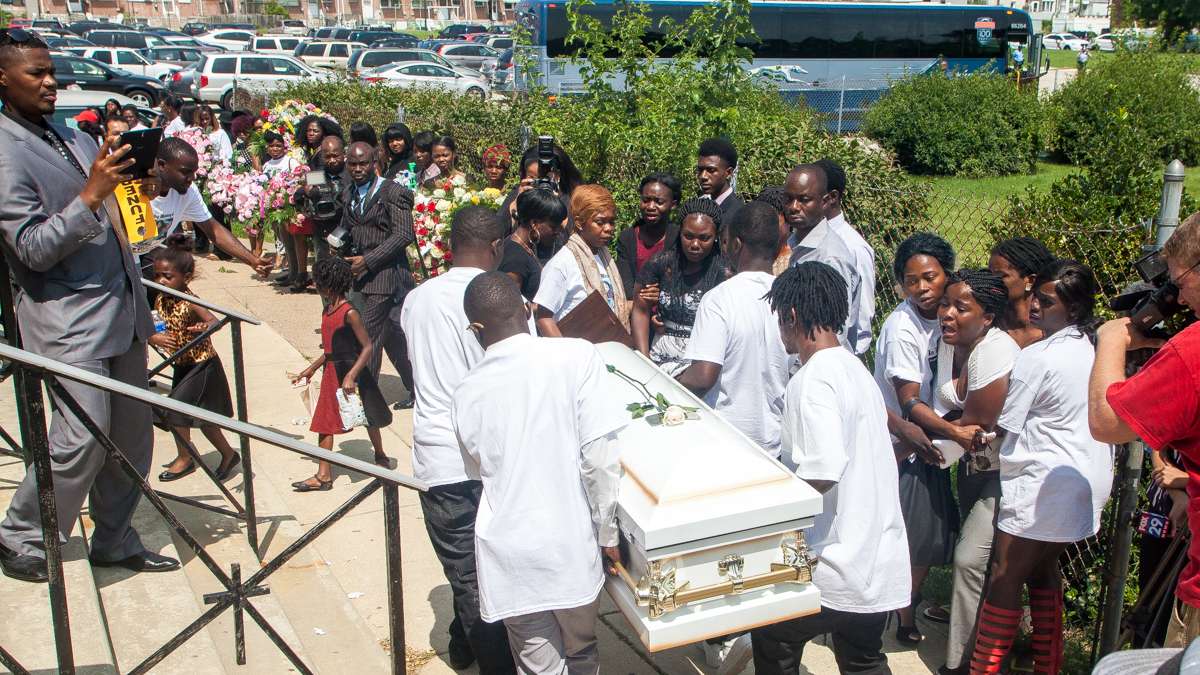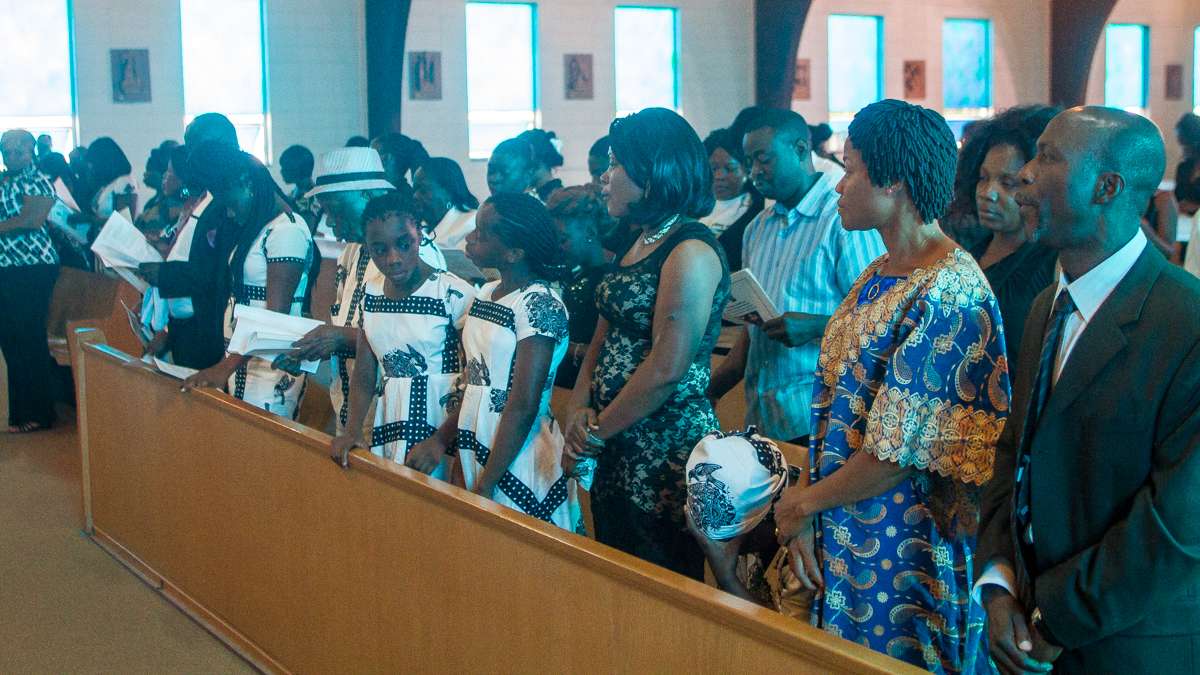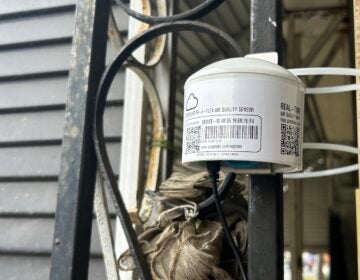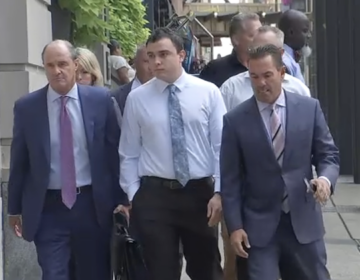Funeral for four children killed in SW Philly fire draws Liberians together [updated]
The wake started small – only a few dozen people in the first few pews, but attendees were already coming from out of state to pitch in.
“You need the output of love. You want people to be there for you, to comfort you. So in the Liberian tradition, this is comforting,” said Michael Chea, who came down from New York and has been doing fundraising and public relations for the funeral through the Liberian Association of Pennsylvania.
Chea says that for members of the Liberian diaspora, helping out is expected.
Christian Dunbar of Philadelphia says he began receiving calls from Liberian relatives about what he was doing to help as soon as the heard that the fire had killed four kids age four or younger. So, he decided to use his background in finance to help. “They said, ‘What’s your role?’ So I’m keeping track of the funeral expenses,” said Dunbar. He is also a member of a task force created by Kenyatta Johnson.
Delays
Organizers say that the funeral was delayed for more than a month after the fire for a few reasons.
“It’s not completely uncommon for West African families to delay burying their dead, two, three, four weeks out,” said Dunbar.
Another reason for the delay: the mother of two of the children, Dewen Bowah, had been hospitalized following the blaze for injuries related to the fire.
Dunbar also thinks that the scale of planning a funeral for four kids took time – time for far-away family to book plane tickets. Chea says that Liberians are expected to come from Maryland, Minnesota, North Carolina and Virginia.
“Typically, Liberians will do a wake, a funeral and a repast. A repast is an opportunity to celebrate the life of the people who passed,” said Dunbar.
Grieving with a crowd
The delay also helped some anger from the fire to dissipate. In the days after, many Liberian immigrants accused the fire department of a slow response, even though the first trucks were on the scene in minutes.
Darcy Walker Krause works for the Center for Grieving Children. She says respecting different displays of grieving – including anger – is important.
“If we can, suspend that judgment. I think it helps us individually process what we’re experiencing better,” she said. “But it also frees the other people in the room or in the community to express how theyr’e feeling in a away that’s comfortable for them.”
“We’re expecting between 500 to 700 people for the repast,” said Patricia Quinn of Final Farewell, a nonprofit that helped raise the money for these funerals. She said Tom Kovacevich of the Food Distribution Center donated 1,600 pounds of food for the wake and repast, and Greyhound had donated a bus to take those without cars to the cemetery.
While there has been an outpouring of donations for the funeral, Quinn also says that families who lost their homes will need help for months to come.
WHYY is your source for fact-based, in-depth journalism and information. As a nonprofit organization, we rely on financial support from readers like you. Please give today.














